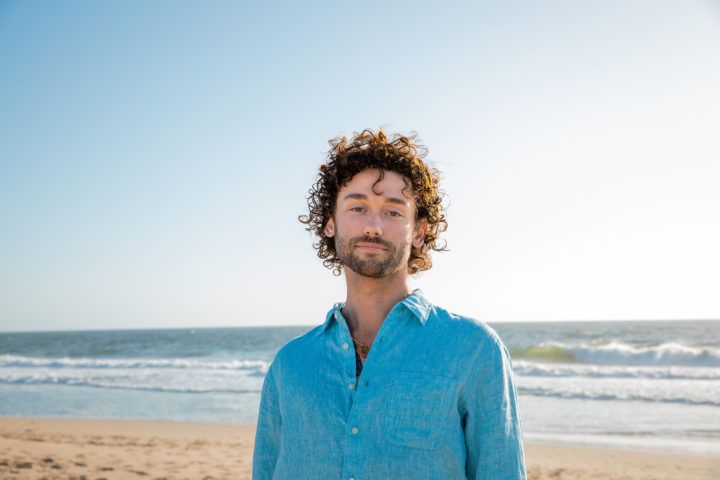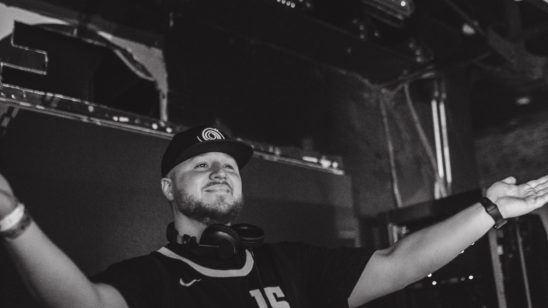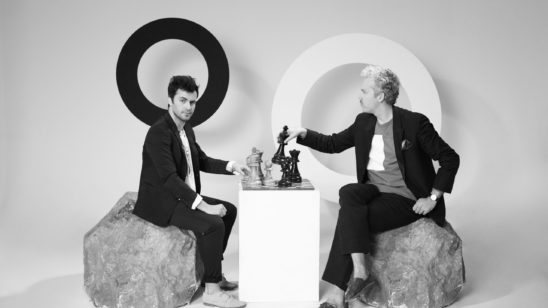
ASW Finds Identity Through Music, Benefitting Crisis Hotline [Interview]
Some of Alex Wagner’s earliest memories were laying on the ground, listening to his father play the piano. When Wagner got his own piano and learned at the age of 7, he began to teach himself a unique language through music.
A few years later, his mom finally allowed the family to have their first video game system. Immediately, Wagner was captivated by theme songs of Super Mario 64, specifically the water level, and the “Fire Temple (Theme)” that would play in Legend of Zelda: Ocarina of Time.
“I was just taken away,” Wagner shared in a recent interview for MP3 MAG’s June issue. “Hearing these electronic scores, it was like this whole new world for me.”
At age 11, his dad bought him his first audio engineering software, SONAR’s Cakewalk, which Wagner cites as the inception point of his career and path dedicated towards music.
“It’s been interesting how it’s all kind of come full circle,” he said, recalling how his earliest live performances at 15 were just him singing and playing the piano. A few years later, he began incorporating his production tracks into live performances, layering beats he made while simultaneously singing and playing the keys.
At around 21—in part from shuffling roommate situations while attending the University of Oregon—he found himself singing much less than he used to. “I was like well, this sucks,” ASW told MP3 MAG. “I still need to express myself.” The producer opted to continue experimenting and learning with electronic music and in 2011, the ASW project was born.
Growing up in the progressive city of Portland and attending the “highly radical, free-spirited” University of Oregon, being gay has always been a positive for Wagner. He was able to quickly align himself with not being defined by his sexuality, but highlighting it as a prominent piece of him. While he hasn’t experienced the same push back and struggles as many in the LGBTQ community, he has surely felt its collective pain. Following the Pulse Nightclub shooting in 2016, Wagner formed the Amplify Love Campaign and threw two fundraisers to benefit the Q Center in Portland and Gay City in Seattle.
Bringing people and community together is one of the highest accolades for Wagner, and has helped shape his mental health journey. Running around to talk with and recruit different artists—from fine arts, poetry, acoustic musicians, and electronic musicians—and bringing them together helped Wagner feel part of something bigger.
Around this time, Wagner had begun working and collaborating with a friend, Ryan Lassi, in addition to writing for his own solo project. In 2017, however, Wagner’s life would change forever after his mother unexpectedly passed away.
“I had this void of how I wanted to express myself,” said Wagner. “I was making this super wild, lively rock-and-roll music, but it just didn’t feel right after she passed.”
He and Lassi would later sit down and come up with their duo music project, Ari, which Wagner described as being very innocent, very pure, very child-like tones and sounds. “That’s what I needed at the time.” The duo went on to release dynamic remixes of Galantis’ “Tell Me You Love Me” and Icona Pop’s “Faded Away” on top of collaborating with artists like FrankMusik (“Months”).
Prior to the pandemic, Wagner moved to Manhattan Beach, CA, and went completely off the radar for six months to work on himself and heal from the grief he’d been running from for a few years. Wagner ultimately got involved with the Crisis Text Line, a non-profit that acts as a text-based resource for those in crisis. In February of 2020, he began his work with the hot line. Since then, he’s done over 52 weeks and 200 hours of eye-opening volunteer work.
“Here was this service to help these folks in a time of crisis find a moment of calm,“ ASW reflected. “Seeing how valuable a resource this was for people, be it if they were struggling with COVID-19, if they were struggling with the racial injustices that we were seeing, or if they were having problems in their relationships or with sexuality, up or down or left or right, was [powerful].”
Then 2020 continued to unravel, with everything from the protests of George Floyd’s death to the chaotic U.S political race. These series of events, plus the experiences he was receiving with his volunteer work, led him to ask himself what the ASW was all about.
ASW stands for “A Single Wave,” a concept about the understanding of connectedness by virtue of the origin of our existence. ASW explains: “If the Big Bang is the thing that happened, we all came from an event. Therefore, every atom that came from that is related. I’d look around and if I see pain and all these other things, I’m connected to that. I was done hiding. I was done healing. I was done being this cartoon character, the Ari character, that I was playing for years. I wanted to put myself back into action.”
Following his 2021 EP, Reborn, ASW began debuting the 2.0 phase of his career with the rollout of the Dahlia EP. The effort reflects the poetic translation of Wagner’s struggle with mental health and a mosaic of all those he’s helped along the way. In early May, he released the EP’s first single, “A Garden Overrun,” which features a swooning, haunting falsetto on vocals to represent his struggle with mental health.
“A Garden Overrun is the moment where we are overloaded, be it overloaded by misdirection, or pain, or even simply change,” said ASW. “This song is a deep progressive journey into the heart of a mind contemplating chaos.”
The single also helped kick off The Dahlia Experience, a livestream hosted on Popgang Records’ Twitch channel to raise funds to benefit the Crisis Text Line. As of last week, the stream had raised over $4500.
On June 11, he delivered the EP’s next single “Roots,” which serves as a letter to the producer’s former self.
A Garden Overrun, the leading track of the EP, is a deep progressive journey into the heart of a mind contemplating chaos. Through his own words, he comes full circle from his initial start in music and this journey of mental fortitude. “Know me by my roots” offers a sense of wisdom and pride, which much of the song encapsulates oceanic, wading moments of calm he wishes he could have felt back then.
Our roots hold us firm in who we are, and often remind us of how much we’ve grown. No matter the dirt and darkness from which we uproot ourselves, we all have the opportunity to not only bloom into the most vibrant flower, but plant seeds of positivity and growth for those around us.
“That was one of the beauties of writing [“Roots”], I was able to write a story where I was thinking of multiple people and groups with each song. “Roots” is for the transgendered, for the minority groups, for being vulnerable in the depths of the night. Roots is for so many different folks and all the other songs [on Dahlia] have a similar thing where I write a part about me, but at the same time it was unique.
To be vulnerable. To be transparent. And to understand to that person that I could be accepted because it took me until this year to finally, completely leave that and writing roots was the finality of that. This whole past year was the finality of that process, for finding peace for me.“
FOLLOW ASW:
Facebook: facebook.com/
Instagram: instagram.com/
Twitter: twitter.com/
Spotify:





